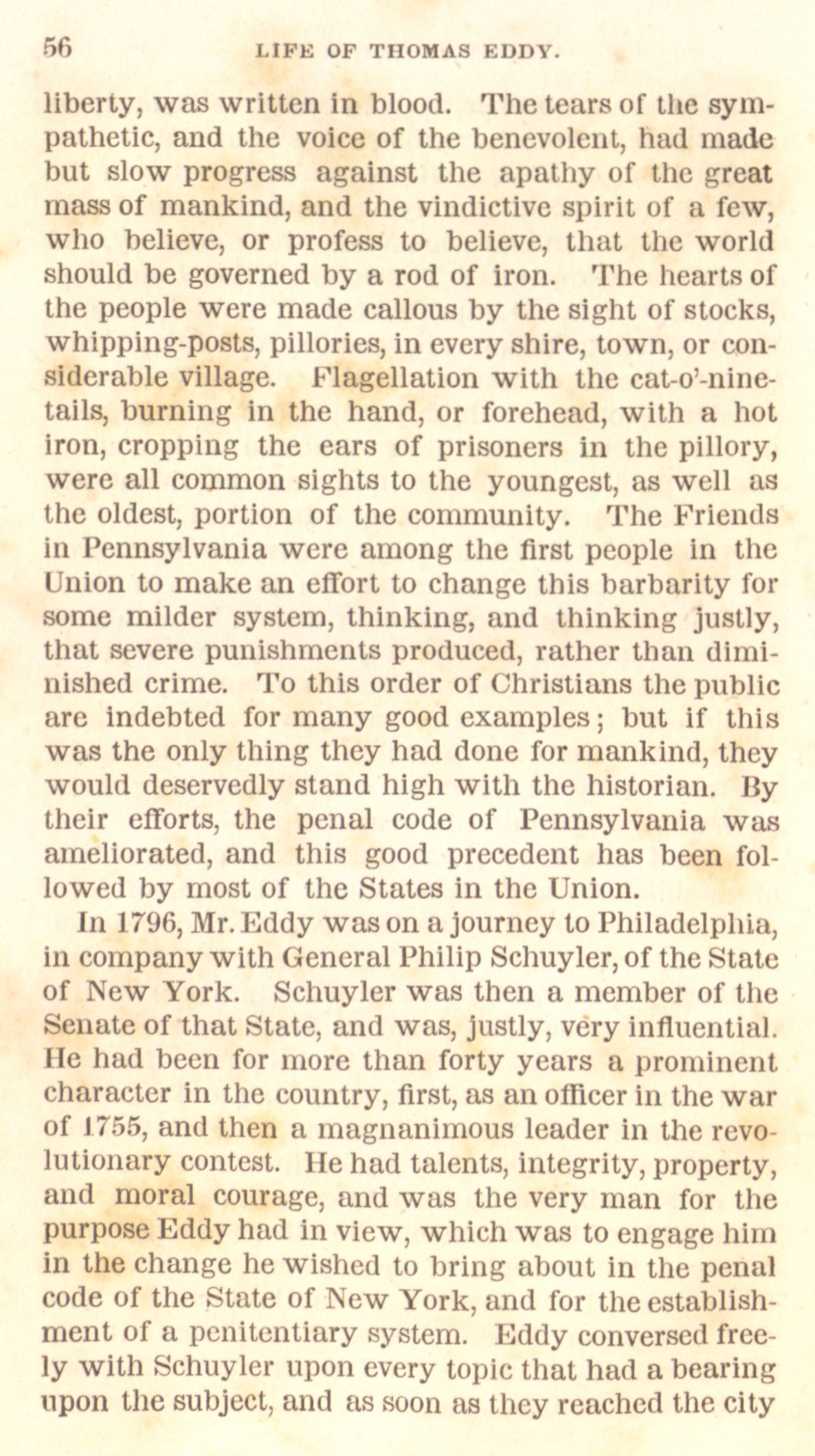liberty, was written in blood. The
tears of the sym-
pathetic, and the voice of the benevolent, had made
but slow progress against the apathy of the great
mass of mankind, and the
vindictive spirit of a few,
who believe, or profess to believe, that the
world
should be governed by a rod of iron. The hearts of
the people
were made callous by the sight of stocks,
whipping-posts, pillories, in
every shire, town, or con-
siderable village. Flagellation with the
cat-o'-nine-
tails, burning in the hand, or forehead, with a hot
iron,
cropping the ears of prisoners in the pillory,
were all common sights to
the youngest, as well as
the oldest, portion of the community. The
Friends
in Pennsylvania
Union to make an effort to change this barbarity for
some milder system, thinking, and thinking justly,
that severe punishments produced, rather than dimi-
nished crime. To this order of Christians the public
are indebted for many good examples; but if this
was the only thing they had done for mankind, they
would deservedly stand high with the historian. By
their efforts, the penal code of Pennsylvania
ameliorated, and this good precedent has been fol-
lowed by most of the States in the Union.
In 1796, Mr. Eddy
in company with General Philip Schuyler
of New York
Senate
He had been for more than forty years a prominent
character in the country, first, as an officer in the war
of 1755, and then a magnanimous leader in the revo-
lutionary contest. He had talents, integrity, property,
and moral courage, and was the very man for the
purpose Eddy
in the change he wished to bring about in the penal
code of the State of New York
ment of a penitentiary system. Eddy
ly with Schuyler
upon the subject, and as soon as they reached the city

